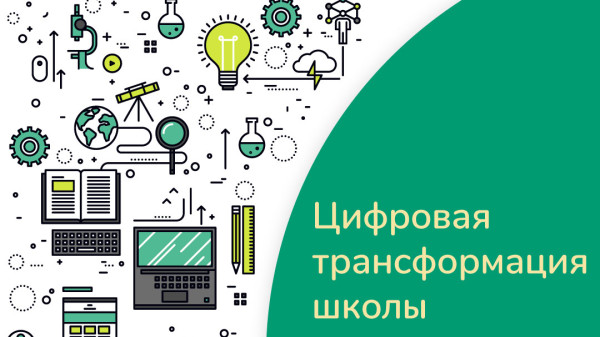
https://doi.org/10.29003/m958.sudak.ns2020-16/106-107
Цифровая среда все более заполняет пространство человеческой жизни: сферу его общения, деятельности, социальных отношений. Цифровизация образования создает еще одну «среду» жизни человека, наряду с социальной, культурной и предметной. Для успешного развития человека необходимо определить место «цифровой» среды среди других сред, ее взаимодействие с ними и ее роль в развитии, начиная с раннего детства.
Освоение предметной среды определяет возможности ориентировки человека в предметном мире и овладения им, развитие ребенка как субъекта взаимодействия с предметным миром (преобразование предметной среды в соответствии с потребностями, индивидуальными, возрастными и психофизиологическими возможностями человека, развитие практическое мышление и пр.). Освоение социальной среды предполагает ориентировку человека в требованиях и нормах социума, активные действия по поиску отвечающих индивидуальности способов встраивания в среду и преобразование социальной среды в соответствии с изменением ценностно-смысловой сферы. Освоение культурной среды предполагает восхождение в мир культуры, освоение базовых человеческих ценностей, развитую нравственность, сформированность культурных эмоций и чувств, духовно-нравственной мотивации, созидание культуры и т.д. Каковы задачи и функции цифровой среды, является ли она еще одной новой средой обитания человека или она преобразует все имеющиеся среды и встраивается в них? Как она меняет жизнь человека и каковы взаимоотношения человека с ней (искусственным интеллектом, виртуальной реальностью), насколько она меняет самого человека? Что осваивает человек через освоение цифровой среды? Что он преобразует в этой среде, являясь субъектом отношений с ней? По-видимому, цифровая среда представляет собой новый тип среды обитания человека в силу возможности создания с ее помощью виртуальных множественных миров. Последнее обусловливает возможность как позитивных, так и негативных последствий ее активного внедрения в образование: утрата образа Я и способности различать Я и не-Я, переживание себя как придатка цифрового мира (количество «кликов» в виртуальной реальности как основание самооценки), анонимность и «бестелесность», опасность разорванного, «расщепленного» сознания, обусловленного недиалогичностью множественных Я; формирование клиппового и NET— мышления - прагматического, неинтуитивного, поверхностного; поглощение ребенка цифровой средой, их созависимость, изменение ценностно-смысловой сферы и системы переживания ребенком себя и своих отношений с миром. Позитивный вклад цифровой среды в развитие ценностно-смысловой и эмоциональной сферы связан с развитием ребенка как субъекта в отношении цифровой среды, освоение ее как одного из средств саморазвития, что требует грамотного и аккуратного осуществления школьной цифровизации.
I n t e r n a t i o n a l C o n g r e s s
“Neurosciencefor Medicine and Psychology”
Sudak, Crimea, Russia, October 6-16, 2020
107
THE DIGITAL ENVIRONMENT AS A FACTOR IN THE DEVELOPMENT OF THE VALUE-SEMANTIC ANDEMOTIONAL SPHERE OF SCHOOLCHILDREN
Bolshunova Natalya Ya.
The digital environment more and more fills the space of human life: the sphere of its communication, activity, social relations. The digitalization of education creates another “environment” of human life, along with social, cultural and objective. For successful human development, it is necessary to determine the place of the “digital” environment among other environments, its interaction with them and its role in development, starting from early childhood. The development of the objective environment determines the possibilities of orienting a person in the objective world and mastering it, the development of the child as a subject of interaction with the objective world (the transformation of the objective environment in accordance with the needs, individual, age and psychophysiological capabilities of a person, the development of practical thinking, etc.). The development of the social environment involves orienting a person in the requirements and norms of society, active actions to find ways of embedding into the environment that meet individuality and transforming the social environment in accordance with a change in the value-semantic sphere. The development of the cultural environment involves the ascent into the world of culture, the development of basic human values, developed morality, the formation of cultural emotions and feelings, spiritual and moral motivation, the creation of culture, etc.
What are the goals and functions of the digital environment, is it another new human environment, or is it transforming all existing environments and integrating into them? How does it change a person's life and what is the relationship of a person with it (artificial intelligence, virtual reality), how much does it change the person himself? What does a person learn through mastering the digital environment? What does it transform in this environment, being the subject of relations with it? It seems that the digital environment is a new type of human environment due to the possibility of creating multiple virtual worlds using it. The latter makes the possibility of both positive and negative effects of its active implementation in education: the loss of self-image and the ability to distinguish between I and not-I, trialing myself as an appendage of the digital world (the number of "clicks" in virtual reality as the basis of self-assessment), anonymity and "incorporeality", the danger of a torn, “split” consciousness caused by the non-dialogic nature of multiple Selves; the formation of clipping and NET — thinking — pragmatic, non-intuitive, superficial; swallowing a child by the digital environment, their codependency, changing the valuesemantic sphere and the system of the child experiencing himself and his relations with the world.
The positive contribution of the digital environment to the development of the value-semantic and emotional sphere is associated with the development of the child as a subject in relation to the digital environment, its development as one of the means of self-development, which requires competent and accurate implementation of school digitalization.
Нейронаука для медицины и психологии: XVI Международный
Н45 м еждисциплинарный конгресс. Судак, Крым, Россия; 6–16 октября 2020 г.:
Труды Конгресса / Под ред. Е.В. Лосевой, А.В. Крючковой, Н.А. Логиновой. –
Москва: МАКС Пресс, 2020. – 558 с.

